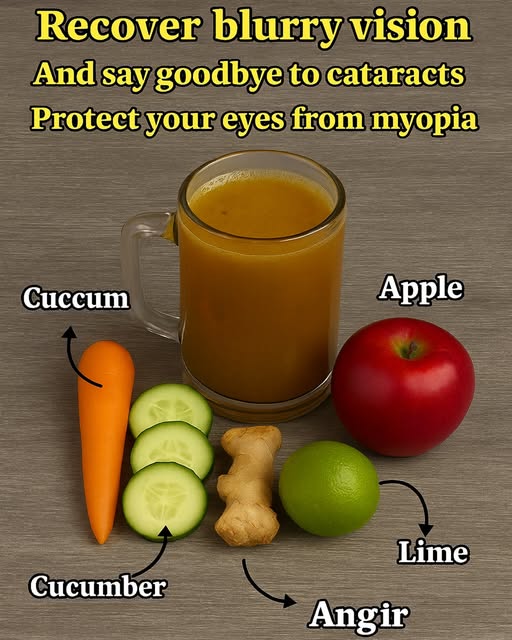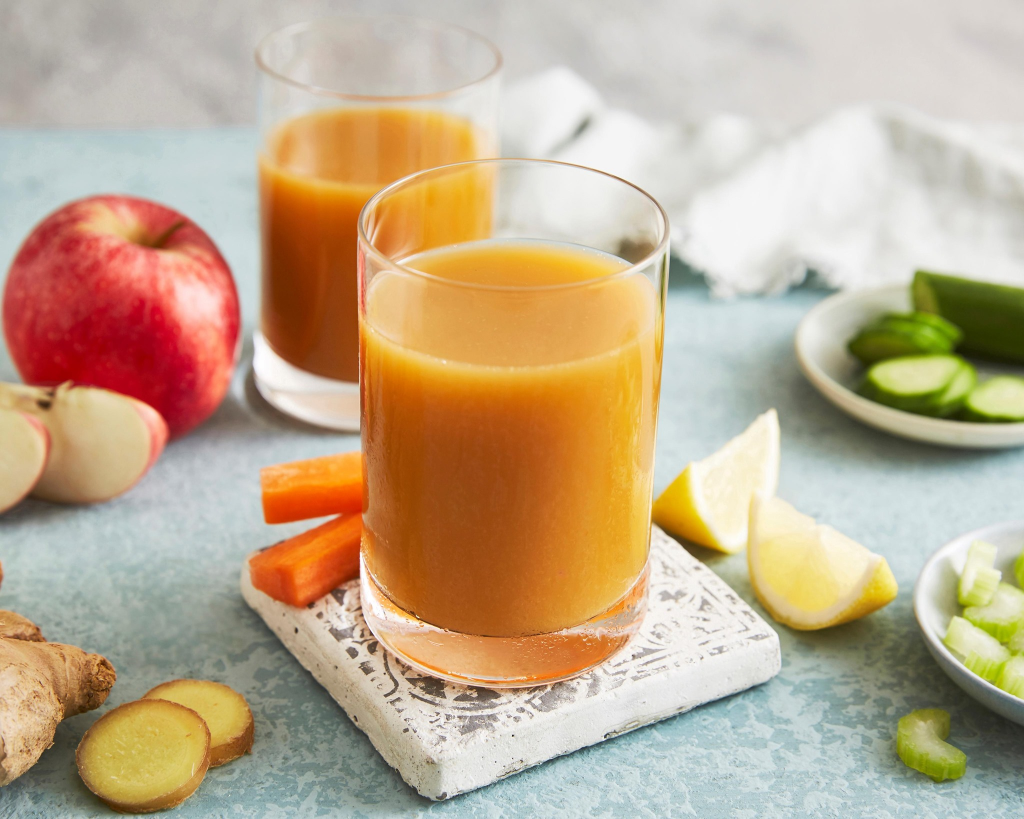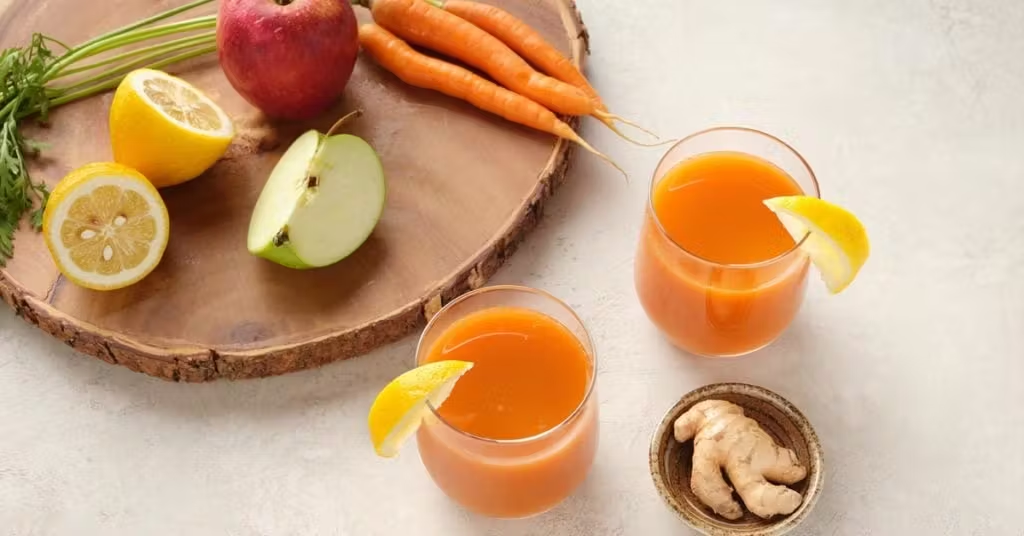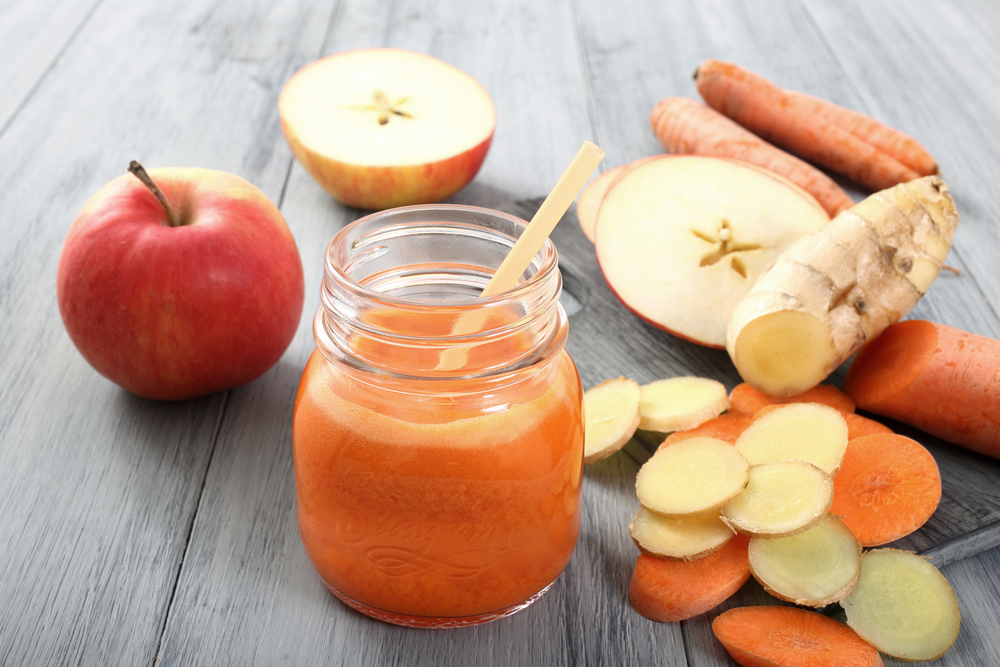Did you know that according to the World Health Organization, at least 2.2 billion people worldwide suffer from vision impairment or blindness? What’s even more striking is that many cases are preventable with simple lifestyle changes, better nutrition, and proper eye care. Blurry vision, cataracts, and myopia (nearsightedness) are among the most common concerns, especially in a world where screens dominate our daily lives.
The good news? Nature provides us with remarkable tools to protect and nourish our eyes. Certain fruits, vegetables, and natural remedies are packed with antioxidants, vitamins, and minerals that can support eye health. Instead of relying only on corrective lenses or surgery, adding specific foods to your daily routine may help strengthen your vision, delay the progression of cataracts, and shield your eyes from myopia. In this article, you will learn how to recover blurry vision, the role of nutrition in eye health, and practical recipes that can be integrated into your lifestyle. By the end, you’ll be inspired to see food not only as fuel but also as medicine for your eyes.

Why Vision Problems Are Rising
Our modern lifestyle is one of the biggest contributors to poor eyesight. Spending hours on smartphones, computers, and television strains the eyes. Blue light exposure, lack of outdoor activity, and poor nutrition combine to create a perfect storm. Studies suggest that cases of myopia have nearly doubled over the past 50 years, with predictions that by 2050, almost half of the world’s population could be nearsighted.
Cataracts, another major issue, are typically associated with aging, but lifestyle factors such as smoking, excessive sun exposure, and nutrient deficiencies accelerate their development. The blurry vision many experience early in life may be the first warning sign of long-term eye problems.
The Role of Nutrition in Eye Health
Nutrition plays a central role in protecting vision. Certain vitamins and minerals act as protective shields against oxidative stress, inflammation, and cellular damage in the eyes. Below are some of the key nutrients:
- Vitamin A: Essential for preventing night blindness and supporting the cornea. Found in carrots, sweet potatoes, and leafy greens.
- Vitamin C: A powerful antioxidant that reduces the risk of cataracts and supports collagen in the cornea. Found in citrus fruits, kiwi, and bell peppers.
- Vitamin E: Helps protect eye cells from damage caused by free radicals. Sources include nuts, seeds, and spinach.
- Lutein and Zeaxanthin: Antioxidants that filter harmful blue light and protect the retina. Abundant in kale, spinach, and corn.
- Zinc: Supports the transport of vitamin A to the retina and may help prevent macular degeneration. Found in pumpkin seeds, legumes, and meat.
- Omega-3 fatty acids: Essential for reducing dry eyes and maintaining the health of the retina. Found in fish, chia seeds, and flaxseeds.

Eye-Friendly Juice Recipe
One of the simplest and most delicious ways to nourish your eyes is through fresh juice blends made from nutrient-rich ingredients. The combination of carrot, cucumber, apple, lime, and ginger is particularly beneficial.
Ingredients
- 2 medium carrots
- 1 cucumber
- 1 apple
- 1 lime
- 1 small piece of ginger
Instructions
- Wash all ingredients thoroughly.
- Slice the carrots, cucumber, and apple into small pieces.
- Add them to a juicer or blender along with the ginger.
- Squeeze the juice of one lime into the mixture.
- Blend until smooth and serve fresh.
This juice provides vitamin A from carrots, hydration and silica from cucumbers, antioxidants from apples, vitamin C from lime, and anti-inflammatory properties from ginger. Drinking it regularly may help improve overall eye health, reduce inflammation, and support clearer vision.

Lifestyle Tips to Prevent Blurry Vision, Cataracts, and Myopia
1. Limit Screen Time
Follow the 20-20-20 rule: every 20 minutes, look at something 20 feet away for 20 seconds to reduce digital eye strain.
2. Protect Against UV Rays
Wear sunglasses with UV protection to prevent cataracts and retinal damage caused by sun exposure.
3. Stay Hydrated
Dehydration can lead to dry eyes, irritation, and blurry vision. Aim for at least 8 glasses of water daily.
4. Practice Eye Exercises
Simple practices like rolling your eyes, focusing on near and far objects, and blinking frequently help maintain flexibility and moisture in the eyes.
5. Prioritize Sleep
Sleep allows the eyes to repair and recover. Poor sleep quality contributes to eye strain and dryness.

Quick Nutrient-to-Food Table for Eye Health
| Nutrient | Benefits for Eyes | Food Sources |
|---|---|---|
| Vitamin A | Prevents night blindness, protects cornea | Carrots, sweet potatoes, spinach |
| Vitamin C | Reduces cataract risk, antioxidant | Citrus, kiwi, peppers |
| Lutein & Zeaxanthin | Protect retina, filter blue light | Kale, spinach, corn |
| Zinc | Supports retina and macula | Pumpkin seeds, legumes, meat |
| Omega-3 fatty acids | Prevents dry eye, supports retina | Fish, chia seeds, flaxseeds |
Case Study: Small Habits, Big Impact
Maria, a 42-year-old office worker, experienced blurry vision after long hours at her computer. Instead of rushing to stronger glasses, she began drinking carrot and cucumber juice daily, practiced the 20-20-20 rule, and added leafy greens to her lunch. Within three months, she noticed less strain, clearer vision in the evenings, and reduced reliance on eye drops. While her glasses were still necessary, these small changes significantly improved her quality of life.

Conclusion
Protecting your eyesight doesn’t require extreme measures—it starts with small, intentional habits. By adding nutrient-dense foods like carrots, cucumbers, apples, lime, and ginger into your diet, staying hydrated, and practicing good eye care, you can reduce the risk of blurry vision, cataracts, and myopia. Prevention is always easier than correction, and investing in your eye health today means sharper vision tomorrow.
Frequently Asked Questions (FAQ)
Can diet really improve blurry vision?
Nutrition supports eye health but cannot fully reverse conditions. It works best as prevention or support.
Do these remedies replace glasses or surgery?
No. Glasses and surgery are sometimes necessary. Natural remedies are complementary.
How long until I see results?
Consistency matters. Most people notice improvements in comfort and clarity within a few months.
Disclaimer: This article is for informational purposes only and does not replace professional medical advice, diagnosis, or treatment. Always consult with a qualified healthcare provider before making changes to your eye care routine.




